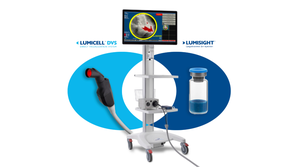The consumer genetic testing company prevails in its effort to allow people access to genetic testing as FDA clears the first direct-to-consumer genetic test in the nation.
February 20, 2015

Arundhati Parmar
After slapping consumer genetic testing company 23andMe for marketing a test to consumers without regulatory clearance, FDA is essentially reversing its decision.
On Thursday, FDA gave permission to the California company's to market its test to detect Bloom Syndrome, the first regulatory clearance for a direct-consumer genetic test.
"“This is a major milestone for our company and for consumers who want direct access to genetic testing," said Anne Wojcicki, 23andMe CEO and co-founder, in a statement. "We have more work to do, but we remain committed to pursuing a regulatory path for additional tests and bringing the health reports back to the US market. This important first step would not have been possible without the hard work and guidance of the FDA.”
In announcing the clearance, FDA also asked for public comment on its intent to exempt these types of genetic tests from requiring clearance before commercialization. That's a major reversal in FDA thinking given 23andMe got into hot water for precisely this reason thereby prompting the FDA warning letter in November 2013.
"The FDA believes that in many circumstances it is not necessary for consumers to go through a licensed practitioner to have direct access to their personal genetic information. Today’s authorization and accompanying classification, along with FDA’s intent to exempt these devices from FDA premarket review, supports innovation and will ultimately benefit consumers,” said Alberto Gutierrez, director of the Office of In Vitro Diagnostics and Radiological Health in the FDA’s Center for Devices and Radiological Health. “These tests have the potential to provide people with information about possible mutations in their genes that could be passed on to their children.”
A regulatory and life sciences attorney, and long-time FDA observer hailed the news.
"A few years ago, I would never of dreamed FDA would take this action," said Bradley Thompson, member of the law firm Epstein Becker & Green P.C., in an e-mail. "But the agency genuinely seems to be trying to get out of the way of quality genetic testing. "23andme clearly gave FDA useful data—data that convincingly showed the safety and effectiveness of tests in this category. Frankly, in many cases, a little bit of data goes a long way. FDA needs some assurance that products are indeed safe and effective, and once they have that assurance they are able to lower the regulatory requirements."
He added that the move shows how much can be achieved if the agency and industry can work collaboratively.
That seems to be the direction the agency is moving toward, which is resulting in improved industry perception toward FDA. A recent report from Pricewaterhouse Cooper's Health Research Institute titled "The FDA and industry: A recipe for collaborating in the New Health Economy" found that 78% of drug and device executives said that FDA has improved the quality and frequency of its communications in the past two years. Further, 76% think the agency provides actionable feedback, and 70% think it offered more applicable guidance, rules, and regulations.
[Image Credit: iStockphoto.com user YinYang]
Arundhati Parmar is senior editor at MD+DI. Reach her at [email protected] and on Twitter @aparmarbb
You May Also Like


